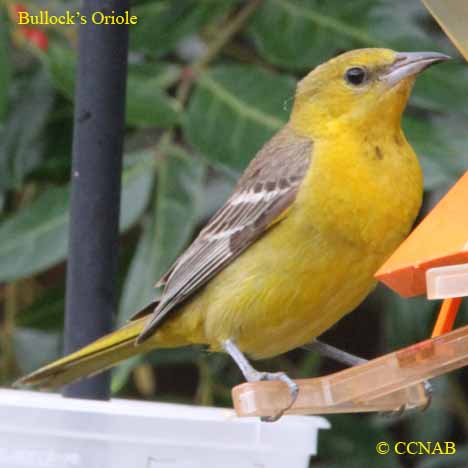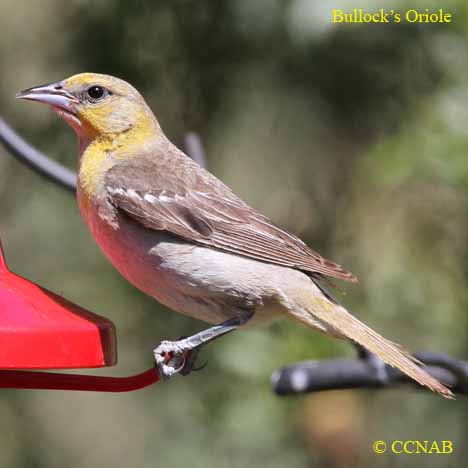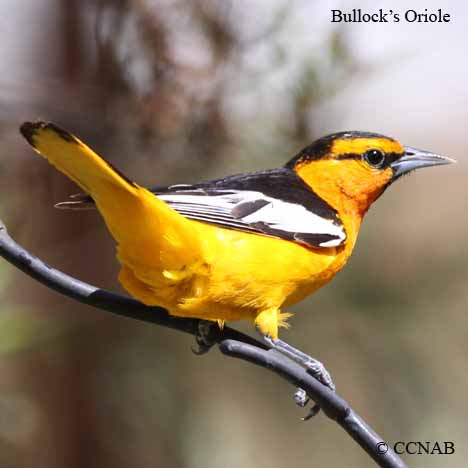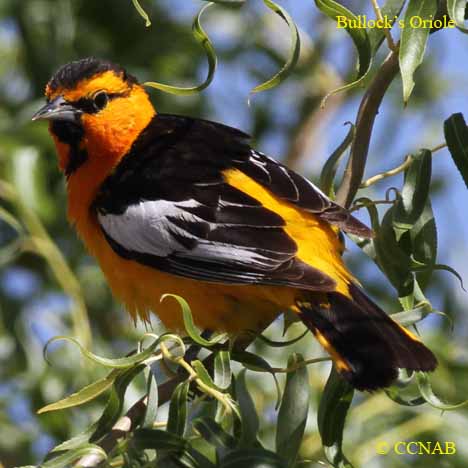North American Bird Search Box
This search box can be used to find bird species using bird's english, french or latin name, or to identify bird by its 4 letter Alpha Code
Field Guide for all the Birds of North America
Bullock's Oriole
4 Letter (english names) Alpha Code: BUOR (1)
Oriole de Bullock
Icterus bullockii
Information, images and range maps on over 1,000 birds of North America, including sub-species, vagrants, introduced birds and possibilities
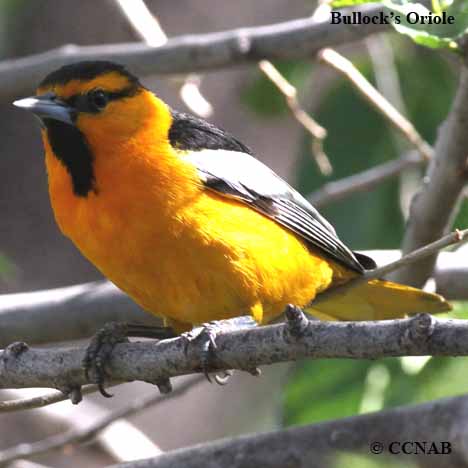
Species: The Bullock's Oriole (Icterus bullockii) is the second sub-species member of the Northern Oriole. It is found in the central USA northern states and up into southwestern Canada. Similar to other orioles, the Bullock's Oriole weaves its nest into the shape of hanging baskets. These birds are attracted to birdfeeders that entice them with fruits, jellies and nectar-type juices.
Distinctions: Sexually dimorphic, the male has a black crown and eyeline, black wings and tail feathers, large area of white coverts on wings, strong orange supercilium, back and body. The female has a light orange body, yellowish supercilium and whitish flanks and underbody, some white wing edging and black wings. Juveniles appear more like the females with maybe slightly brown coloured wings.
Voice: Musical whistles, some similarity to the Northern Oriole.
Nesting: Four to five whitish to whitish-grey eggs, with squiggles of brown and black lines. Nest built from grass, plant fibre, tree bark and string, woven into the shape of a basket and attached to branches high up in the crown of trees.
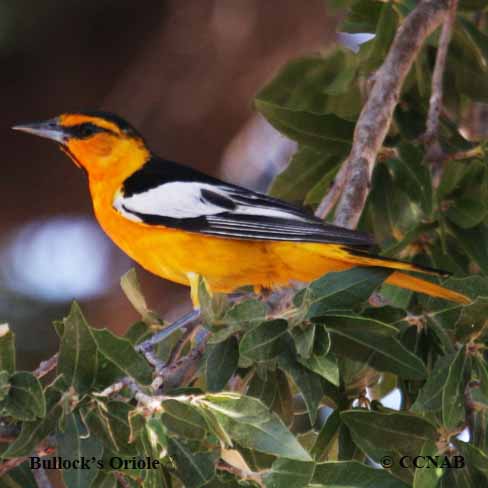
Life, Habitat & Pictures of North American Orioles
| B L | W W | W | Family | Latin Name |
|---|---|---|---|---|
| 9" 23cm | 12" 30.5cm | 1.3oz 37g | Icteridae | Icterus bullockii |
North American Birds Videos
- Click here
- Summer
- Year Around
- Winter
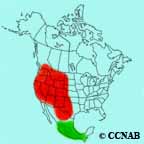
Distribution: It is commonly found throughout wooded areas with mature trees and usually near water. It is an attractive bird that visits backyard birdfeeders. It is seen in North Dakota to southern British Columbia, down into California and across to Texas and into Mexico. It migrates into Central and South America in the non-breeding season.
Reference to Other Bird Site:
ABA - American Birding Association This site represents an organization that maintains official records of all birds species that have been proven to have been seen inside the perimeters of the North American Continent and the surrounding bodies of water. Regular revised versions are posted to keep the bird list current at all times. This is the list used by all serious birders over their lifetime. You may be aware of the movie called the "Big Year". It was with this list that all the competing birders used in an attempt to set a new record as to how many bird species that could be seen by an individual birder in one calendar year.
